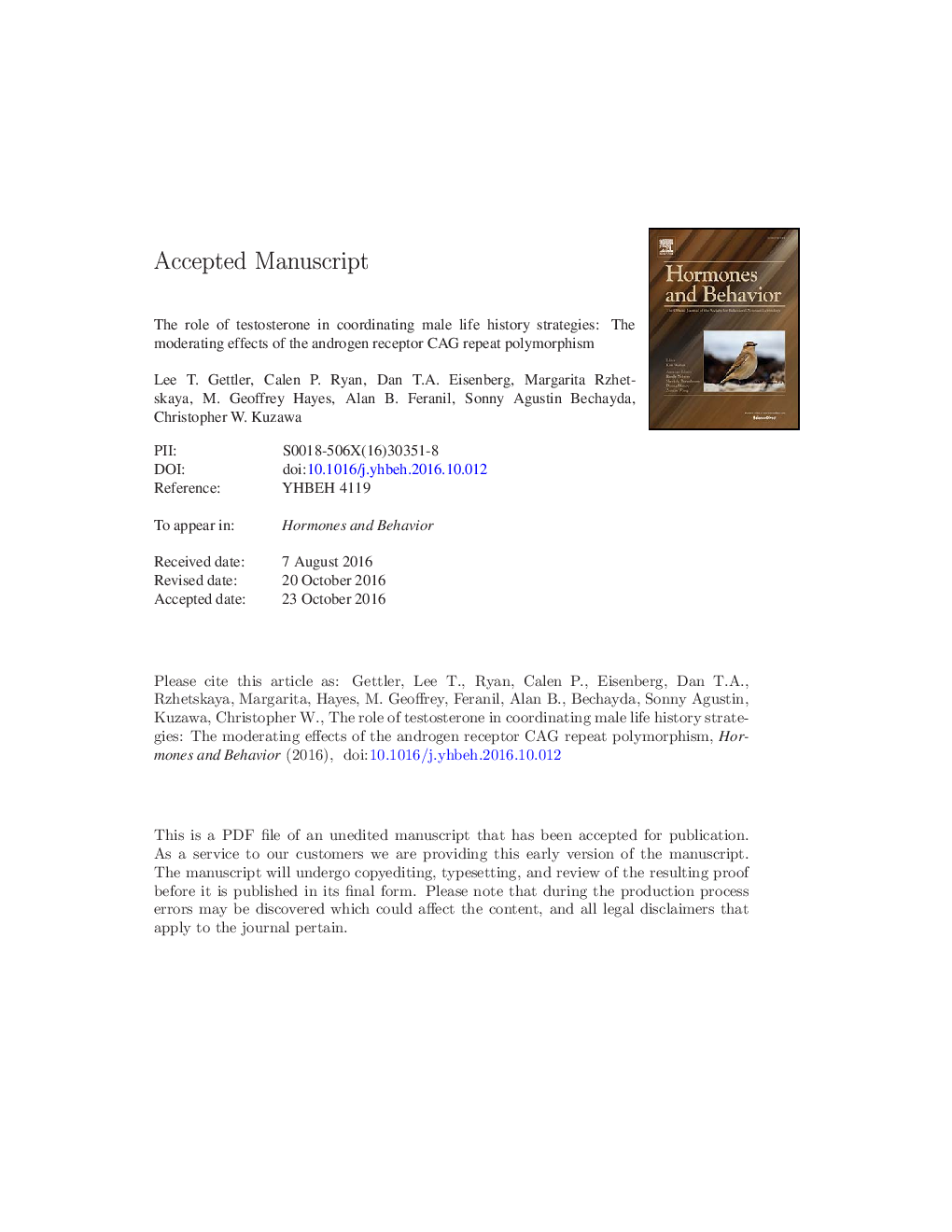| Article ID | Journal | Published Year | Pages | File Type |
|---|---|---|---|---|
| 4931235 | Hormones and Behavior | 2017 | 62 Pages |
Abstract
Partnered fathers often have lower testosterone than single non-parents, which is theorized to relate to elevated testosterone (T) facilitating competitive behaviors and lower T contributing to nurturing. Cultural- and individual-factors moderate the expression of such psychobiological profiles. Less is known about genetic variation's role in individual psychobiological responses to partnering and fathering, particularly as related to T. We examined the exon 1 CAG (polyglutamine) repeat (CAGn) within the androgen receptor (AR) gene. AR CAGn shapes T's effects after it binds to AR by affecting AR transcriptional activity. Thus, this polymorphism is a strong candidate to influence individual-level profiles of “androgenicity.” While males with a highly androgenic profile are expected to engage in a more competitive-oriented life history strategy, low androgenic men are at increased risk of depression, which could lead to similar outcomes for certain familial dynamics, such as marriage stability and parenting. Here, in a large longitudinal study of Filipino men (n = 683), we found that men who had high androgenicity (elevated T and shorter CAGn) or low androgenicity (lower T and longer CAGn) showed elevated likelihood of relationship instability over the 4.5-year study period and were also more likely be relatively uninvolved with childcare as fathers. We did not find that CAGn moderated men's T responses to the fatherhood transition. In total, our results provide evidence for invested fathering and relationship stability at intermediate levels of androgenicity and help inform our understanding of variation in male reproductive strategies and the individual hormonal and genetic differences that underlie it.
Keywords
Related Topics
Life Sciences
Biochemistry, Genetics and Molecular Biology
Endocrinology
Authors
Lee T. Gettler, Calen P. Ryan, Dan T.A. Eisenberg, Margarita Rzhetskaya, M. Geoffrey Hayes, Alan B. Feranil, Sonny Agustin Bechayda, Christopher W. Kuzawa,
